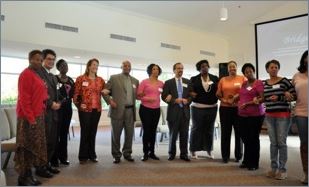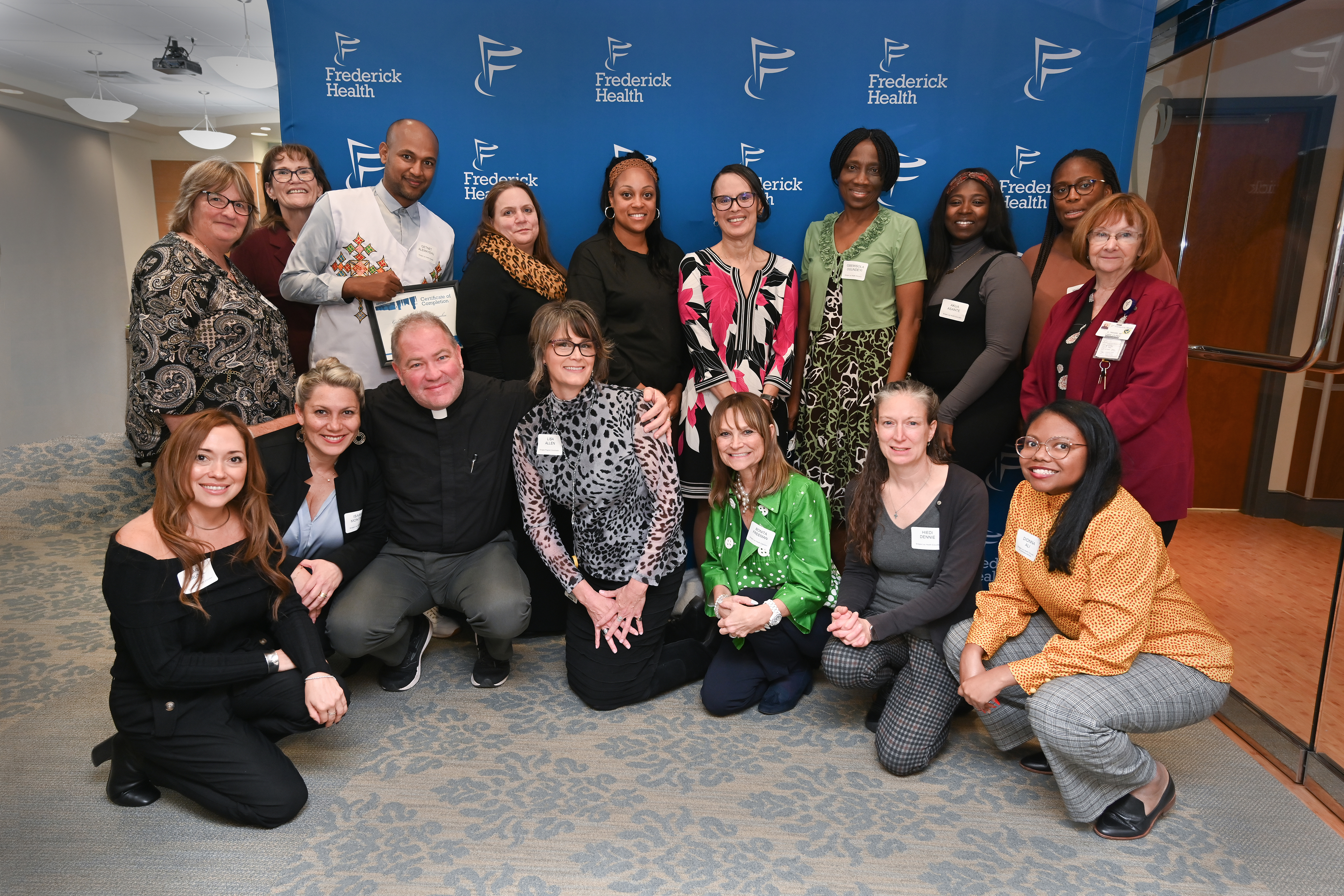Bridges Program
The Bridges Program is an innovative community outreach program that has been created to build partnerships between the Frederick medical, religious, and neighborhood communities. The ultimate goal of the program is to provide timely and easy-to- understand health education materials and tools to a wide population of people that can assist them on their journey to improve their family’s health and wellness status.
Bridges is just one component of Frederick Health's broader population health strategy and looks for opportunities to incorporate a health and wellness strategy into the regular routines and rhythms of a shared community, such as a church, synagogue, or community association. The initial launch focused on the faith based communities of Frederick County because of its size and diversity, but the program is now open to many groups who wish to incorporate a health strategy into their plan of action.
Background
 In 2013, as part of the Community Health Needs Assessment process, Frederick
Health hosted a series of focus groups which represented a diverse cross
section of the community. Those participating members of these groups
noted that some in their community were wary or distrustful because of
historical distrust and perceived inequities in the healthcare system.
Participants also stated that they wanted to see more of the hospital’s
representatives out in their communities, investing in programs to help
them tackle healthcare disparities, preventable deaths, and higher rates
of chronic disease. As the major provider of health services in Frederick
County, Frederick Health had to consider new and innovative ways to get
into the places where people live, work and gather.
In 2013, as part of the Community Health Needs Assessment process, Frederick
Health hosted a series of focus groups which represented a diverse cross
section of the community. Those participating members of these groups
noted that some in their community were wary or distrustful because of
historical distrust and perceived inequities in the healthcare system.
Participants also stated that they wanted to see more of the hospital’s
representatives out in their communities, investing in programs to help
them tackle healthcare disparities, preventable deaths, and higher rates
of chronic disease. As the major provider of health services in Frederick
County, Frederick Health had to consider new and innovative ways to get
into the places where people live, work and gather.
The program focuses on developing a network of Lay Health Educators who serve as facilitators and advocates within their own faith community. The program was modeled after a Johns Hopkins Program called "Health Community Partnerships" with their permission to adapt it for Frederick County.
The Lay Health Educator Program is just one tactic used to meet Frederick Health’s population health goals and establish effective communications with the communities served.
The Curriculum Committee creates and updates all of the Bridges instructional materials and supplemental resources. The Bridges curriculum is selected based on current health needs that have been identified through the analysis of recent health statistics, emerging needs, and basic health, wellness, and proven prevention. Experienced health professionals, physicians, health educators, community advocates, case managers and R.N.’s create flexible, user friendly course materials that can be adapted for a wide range of audiences with different perceptions of health, illness and disease, birth and death, the role of family, and the role of faith.
 The Lay Health Educators are the heartbeat of the program. LHE’s
learn to break common health terminology about prevention, chronic illness
and disease into small, easy to understand chunks of information. Coursework
is just the beginning of learning as they share local experiences and
knowledge to overcome common fears, misperceptions and stereotypes. The
volunteers then return to their communities with high quality tools and
resources to help people get the right care, in the right place, at the
right time. They work with individuals and groups to identify changes
that are necessary to reduce their risk for disease, address social determinants
of health, and often collaborate with Frederick Health to bring health
activities and screenings to remote areas, rural communities, and areas
where there are high rates of preventable disease, utilization and premature death.
The Lay Health Educators are the heartbeat of the program. LHE’s
learn to break common health terminology about prevention, chronic illness
and disease into small, easy to understand chunks of information. Coursework
is just the beginning of learning as they share local experiences and
knowledge to overcome common fears, misperceptions and stereotypes. The
volunteers then return to their communities with high quality tools and
resources to help people get the right care, in the right place, at the
right time. They work with individuals and groups to identify changes
that are necessary to reduce their risk for disease, address social determinants
of health, and often collaborate with Frederick Health to bring health
activities and screenings to remote areas, rural communities, and areas
where there are high rates of preventable disease, utilization and premature death.
The ultimate success of the program rests on the strength of networking and partnership. While some have experience as Parish Nurses or serve in health ministries, prior health experience is not required. All that is required is that someone has the passion, commitment and skill to communicate basic health facts and prevention practices to others. Some will present to groups and others will work one on one. These qualities make a great Lay Health Educator (LHE).
Get Involved
After graduation, all LHE’s are invited back to network, share experiences, exchange new facts and test their skills. Many choose to become involved in Health Fairs, educational seminars, joint projects, and focus groups. Bridges Alumni also are invited to become members of Frederick Health's advisory groups, such as, Patient Family Council and Quality committees. They are also encouraged to become more involved at the county-wide level with the Local Health Improvement Process.
To enroll in the program, an application and interview are required and in most cases, an organizational sponsor must be identified through which the Lay Health Educator will perform the outreach function. The course is free to all participants and includes all meals, materials, and reproducible course materials as well as additional handouts, reference tools and publications that are provided by the course instructors.